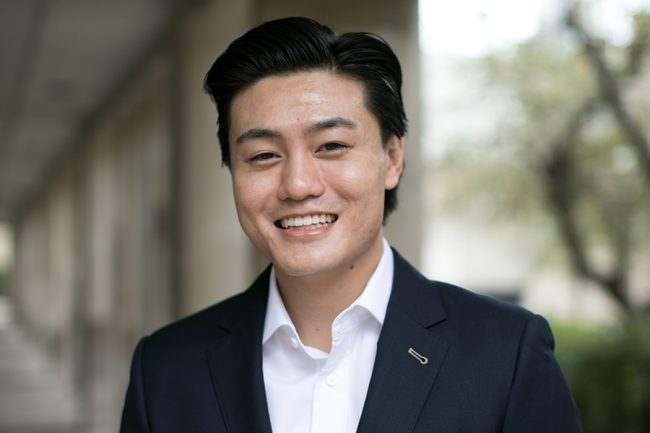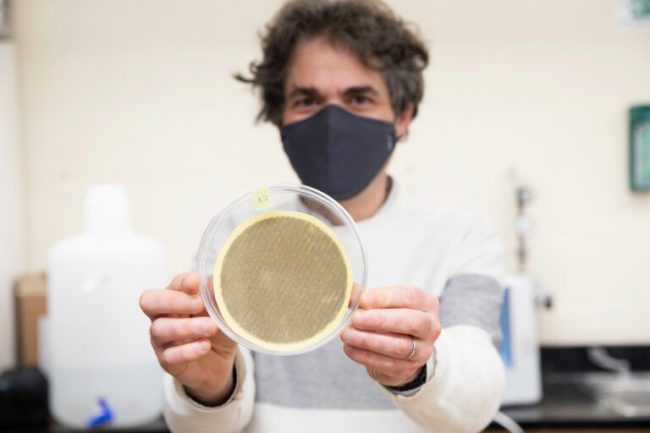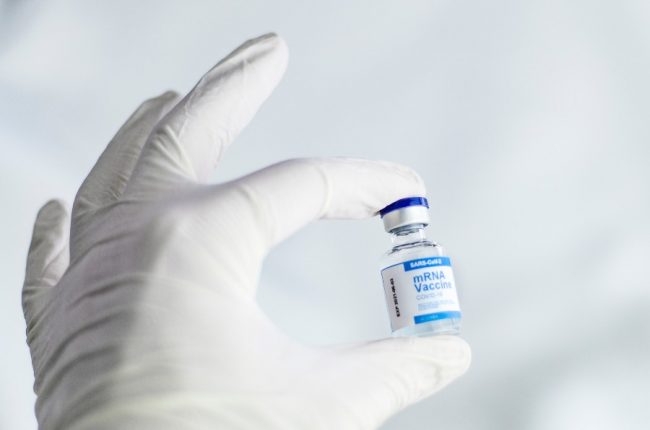COVID-19 pandemic: U of T Engineering stories

Heart-on-a-chip model created by U of T researchers uncovers insights into heart problems caused by COVID-19
Researchers from the Faculty of Applied Science & Engineering and their colleagues across the University of Toronto have created a unique heart-on-a-chip model that is helping untangle the causes of COVID-19-induced heart inflammation and uncover strategies to reduce its impact. While COVID-19 is primarily a respiratory infection, clinicians and researchers are increasingly aware of the virus’s effects on other organs,...

U of T Engineering researcher Paul Chen earns Schmidt Science Fellowship
Growing up in Texas, then later in Calgary, Paul Chen (ChemE PhD 2T2) wasn’t too sure what he wanted from his career — but he did know that he loved building. “When I was little, this meant using Lego bricks, cards, cassette tapes and anything else I could get my hands on. My family still jokes that I discovered countless...

Are safer masks more uncomfortable? New U of T Engineering study offers answers
Wearing a face mask, when combined with other protective measures, has been shown to help slow the spread of the virus that causes COVID-19. But there are still many misconceptions about the relationship between a mask’s level of protection and its comfort. Professor Kevin Golovin (MIE) — along with his Durable Repellent Engineered Advanced Material (DREAM) Laboratory research team — recently completed...

Tracking community transmission: Researchers advance COVID-19 variant detection in GTA wastewater
As Ontario continues its gradual easing of COVID-19 public health measures, continued vigilance is necessary for governments to manage the virus in the long-term. A team including members of U of T Engineering’s BioZone is helping to improve alternative monitoring strategies. One important and cost-effective tool that can help track trends in community transmission, and detect new variants of concern,...

Organ-on-a-chip research identifies new strategy for treating health complications associated with COVID-19
Using their novel organ-on-a-chip platform, a U of T Engineering research team has identified a molecule with the potential to combat one of the most severe complications of COVID-19 infections. The molecule, a novel anti-inflammatory peptide called QHREDGS, does not act on the virus directly. Instead, it works to prevent a potentially life-threatening immune reaction known as a cytokine storm. ...

Indoor air quality expert shares tips to stay safe over the holidays
As new cases of COVID-19 soar, many jurisdictions across Canada are increasing measures to slow down infections from the highly transmissible Omicron variant. Public health officials are calling for further capacity limits in indoor spaces and imploring people to reduce social contacts over the next several weeks. Writer Phill Snel spoke with indoor air quality expert Professor Jeffrey Siegel (CivMin), to discuss what we have learned about virus spread and what we might do to mitigate transmission. This interview has been condensed and edited for length...

Researchers develop a quantum dot smartphone device to diagnose and track COVID-19
Researchers at the University of Toronto (Institute of Biomedical Engineering, Department of Chemistry, Donnelly Centre for Cellular and Biomolecular Research) in collaboration with Sunnybrook Health Sciences Centre, Public Health Ontario, and Mt. Sinai Hospital have engineered a diagnostic test that makes use of a smartphone camera to surveil and track COVID-19 patients. This finding could significantly improve the turnaround time...

U of T Engineering alumna sets up funding initiative to help India recover from COVID-19
The scale of the COVID-19 emergency in India has Canadians looking for ways to help. But many are unsure where to direct their donations because of the vast number of relief efforts. A funding initiative spearheaded by U of T Engineering alumna Narinder Dhami (Skoll ElecE 0T5 + MBA 08) cuts through the confusion so donors can easily make charitable, tax-receipted gifts...

How modelling informs tough ICU decisions during COVID-19: U of T Engineering researchers explain
Last month, an Ontario Health official warned that reaching 900 COVID-19 patients in its intensive care units (ICU) could trigger a triage protocol, in which some of the province’s oldest and sickest patients would not receive the highest level of care available. Ontario only narrowly averted this life-or-death scenario. The pandemic has shone a light on the difficult decisions that...

With vaccines top of mind, U of T brings together experts to address Canada’s biomanufacturing gaps
The University of Toronto is bringing together researchers, pharmaceutical innovators and government partners to address gaps in Canada’s biomanufacturing ecosystem and discuss solutions for public health challenges such as COVID-19. A Biomanufacturing Training & Innovation Workshop hosted by U of T recently drew nearly 100 attendees from academia, government and industry to discuss strategies and priorities related to biomanufacturing training,...
MEDIA CONTACT
Fahad Pinto
Communications & Media Relations Strategist
416.978.4498
fahad.pinto@utoronto.ca
